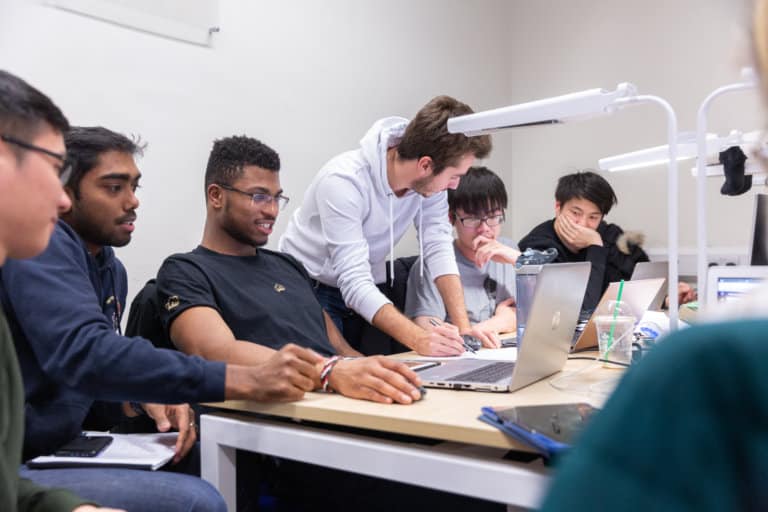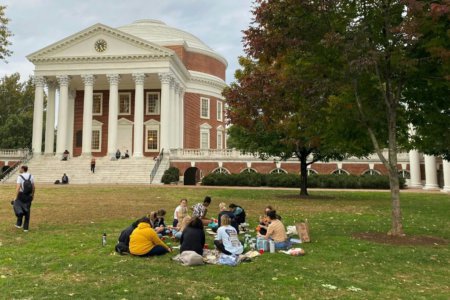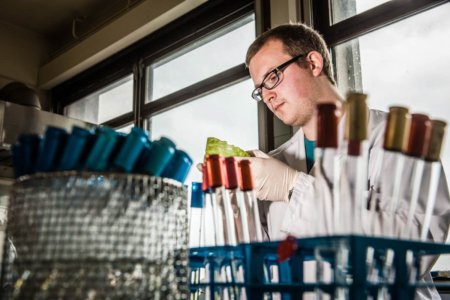
The best physics degrees lead to a world of benefits, many of which are universal. Studying the science that deals with the structure of matter and the interactions between the fundamental constituents of the observable universe is not only the first step into a complex and intricate field but one that builds a solid scientific foundation that can take students far. Along the way, you pick up crucial soft skills to chart impactful 21st-century careers, from critical thinking and problem-solving to effective communication and teamwork.
Such skills prepare physics graduates for industry and academia. They’ve founded companies like Texas Instruments, Sony and Intel. Others deepened our understanding on the disorder that defines complex physical systems (such as the climate), explored the links between quantum mechanics and secure information transfer, detected cosmic rays, demonstrated the wave nature of electrons and made many more discoveries that have redefined how we interpret the world.
Just like they did, you too can advance knowledge and create influential technologies and applications in the field of your choosing. Start with one of the best physics degrees offered by some of the most impactful universities in the world today.
Imperial College London
Join Imperial College London, a world-class university that is ranked sixth in the QS World University Rankings 2023. The Department of Physics is one of the most diverse and active physics research centres in the world and you will have access to state-of-the art facilities and the option to tailor your learning with a wide range of optional modules. You’ll get to explore as far as the edges of the solar system, the edges of the universe and reality, and the edge of knowledge when you join this diverse community of pioneers, creators, and innovators.
The Department of Physics attracts some of the brightest and most talented budding physicists from all over the world. The BSc Physics is a three-year degree that provides logical thinking along with numerical and problem-solving skills to solve the problems of tomorrow, impress a wide range of employers and allow graduates to embark onto some of the most prestigious careers today. If you are aiming for more physics experience, you can follow it up with a one-year postgraduate MSc course or choose one of the four-year MSci programmes from the outset.
Along this journey, you’ll get to be part of a vibrant community of over 300 clubs and societies and a student body representing over 140 countries. Imperial is the seventh most international university in the world. Step beyond campus and you’ll be in London, the global academic capital, with more world-class institutions and resources than any other city in the world, and Europe’s most multicultural city, welcoming people from all backgrounds. This makes for a rich and collaborative living and learning environment that’ll take your creativity, perspectives, and problem-solving skills to another level.
UC Berkeley
Boasting over 500 undergraduates and transfer students a year, the UC Berkeley Physics Department is devoted to scientific discovery and the teaching of future physicists and students, both undergraduate and graduate. Home to the finest faculty who participate in cutting-edge research, the school’s educators make valuable contributions to the world of physics. This allows students the chance to collaborate with the top experts and learn from leaders in the field.
UC Berkeley’s undergraduate physics programme gives students a broad and solid background in the fundamentals of physics. You can decide to have physics as your major or minor programme. This pairs well with the careers training offered by the department, which opens up various professional opportunities for students. They can join high-tech industries, work as management consultants or progress to medical or law school.
Students have access to some of the best research facilities. The Student Machine Shop, for instance, has been part of the department for over 100 years. It gives students the space in a modern facility to learn about and explore today’s conventional methods of design, manufacturing, and material properties through structured training and hands-on applications. The shop is constantly updated with the latest tools for you to explore. This kind of hands-on learning enriches your entire experience and is beneficial from the point of view of job recruiters.
National University of Singapore
The National University of Singapore (NUS) has a renowned physics department with a strong emphasis on both theoretical and experimental research. “NUS Physics Department internationally leads state-of-the-art research in many areas, such as novel functional materials, ultra-precision atomic clocks, flexible electronics, artificial molecular motors, machine learning, ultracold atoms, quantum computation, quantum communication, and fast proton beams,” says Prof. Gong Jiangbin, Head of the Department of Physics. “As zealous and devoted educators, faculty members at NUS Physics are here to unleash your potential in a fulfilling learning journey.”
The faculty consists of esteemed professors and researchers who are at the forefront of their respective fields, providing students with a high-quality education. Both educators and students have been part of fascinating breakthroughs throughout the years. For instance, in 2022 assistant professor Travis Nicholson and his colleagues successfully cooled indium atoms to temperatures near absolute zero, by using magnetic fields and lasers to trap and cool these atoms.
NUS offers state-of-the-art laboratories and facilities, enabling students to engage in hands-on experiments and cutting-edge research. Major research areas of the physics department include Physics of Nanoscience, Condensed Matter and Advanced Materials, Biological Physics, Physics of Nonlinear and Complex Systems, Atomic, Molecular Physics (including Nonlinear Optics), Computational and Theoretical Physics (including String Theory, Cosmology, Particle Physics, etc), Quantum Information, and Graphene and 2D Materials.
*Some of the institutions featured in this article are commercial partners of Study International









